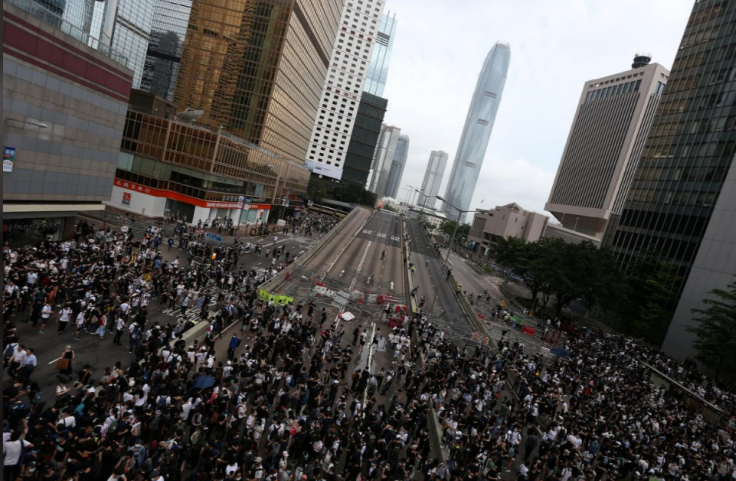Hong Kong is set to witness a fresh wave of protests as the police withdrew from Hong Kong Polytechnic University on Friday. Demonstrators announced on social media that they intend to hold protests beginning on Friday and carrying it forward into the next week, and are gathering support for it.
On Thursday, hundreds of police officers made their way into the severely damaged campus to gather evidence, and also remove dangerous articles such as scores of petrol bombs, arrows and chemicals that were littered across the campus. Hundreds of bottles of corrosive chemicals and over 3,000 Molotov cocktails were found on the campus said the police.

Hong Kong Polytechnic University, located on Kowloon peninsula, has been the centre of intense confrontations between security forces and protesters over the course of nearly six months. The university has borne resemblance to a warzone since mid-November after protesters holed up inside the university violently confronted the riot police with the exchange of petrol bombs and teargas between them. Over 1,000 people were arrested last week.
Post the police pullout, members of the faculty surveyed the campus and took stock of the extent of the damage. "Many classrooms, laboratories and library were destroyed. Even so, there's been no loss of life. We insisted on adopting a humane way to solve the crisis," university president Teng Jin-Guang told reporters.
US gesture irks China
Beginning in June with the protests against the extradition of fugitives from Hong Kong to mainland China, the pro-democracy movement gathered support and momentum over the months. However, over the past few weeks, the violent clashes between the protesters and security forces intensified, with the election results partially punctuating it.
Following the signing of two new bills by US President Donald Trump, that supported Hong Kong pro-democracy protesters, China fired back at the US on Thursday. Chinese Ministry of Foreign Affairs reminded the US that Hong Kong and its affairs were China's internal matters and foreign countries should refrain from interfering in it.(With inputs from agencies)









